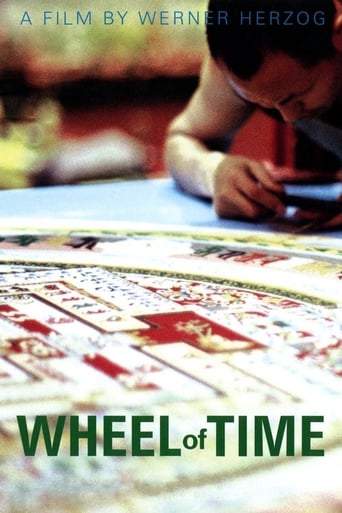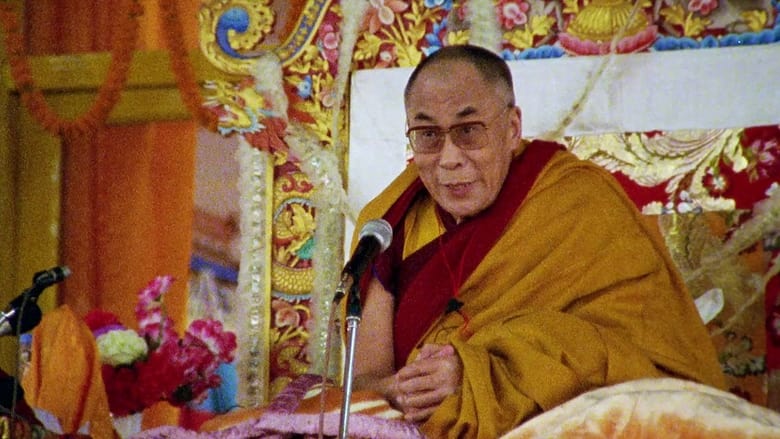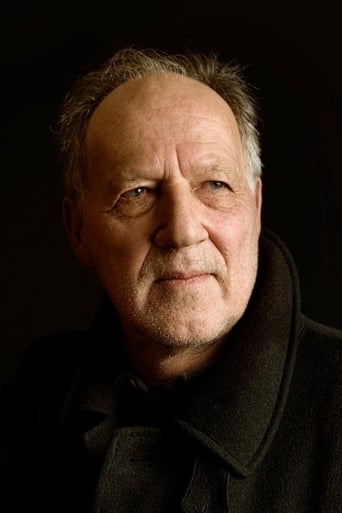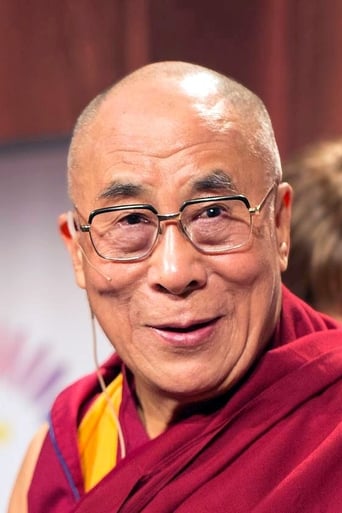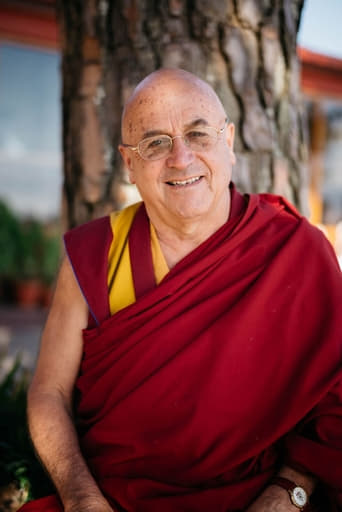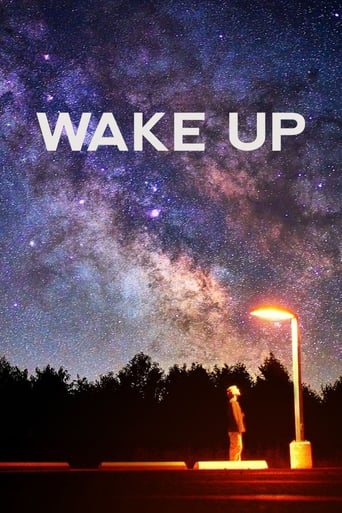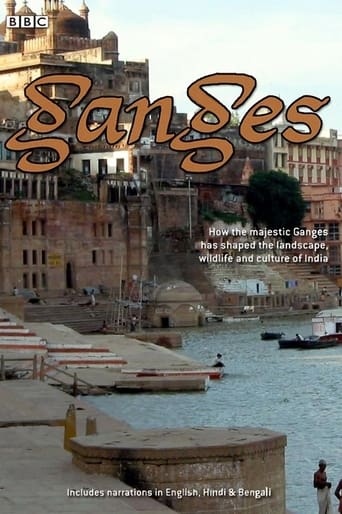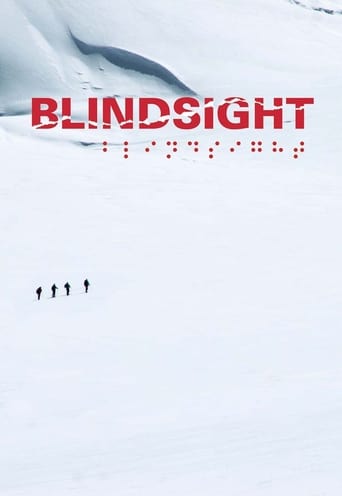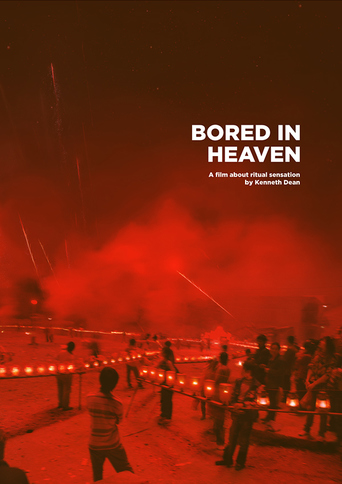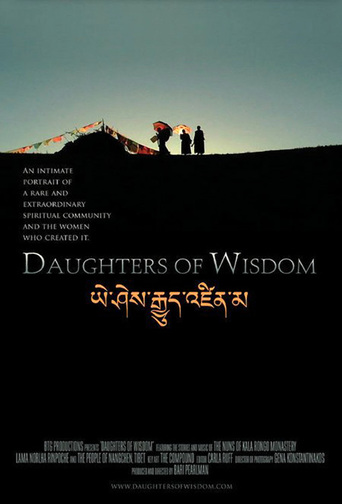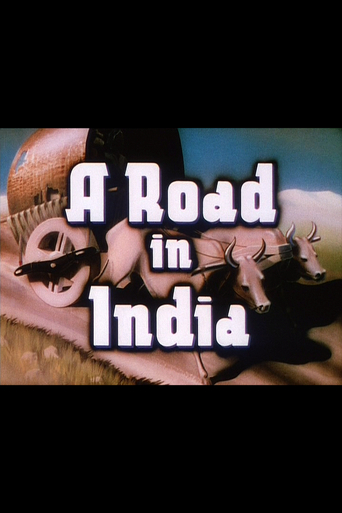Wheel of Time (2003)
Wheel of Time is Werner Herzog's photographed look at the largest Buddhist ritual in Bodh Gaya, India.
Watch Trailer
Free Trial Channels
Cast


Similar titles
Reviews
Too many fans seem to be blown away
Excellent, a Must See
Absolutely amazing
It's the kind of movie you'll want to see a second time with someone who hasn't seen it yet, to remember what it was like to watch it for the first time.
In his film My Son, My Son, his protagonist taunts a student meditating on a rock facing a river, telling him to open his eyes, that reality is out there. I was cautious of this, Herzog's encounter not with a simple madness but with an ancient, complex, beautiful point of view, but cautiously optimistic, curious.We know that Herzog seeks truths in the extremities of life, in the madness that inhabits them. He often guides these subjects to be what he wants them to be, which is his personal reflection that we may find a more eloquent, resilient truth in what deviates rather than what abides, but his visual meditations are tried and true. True enough that Malick, a trobadour himself, has taken from them.But is he merely a tourist in this, the Kalachakra initiation, a Westerner with a camera strapped around his neck approaching sacred ground with idle curiosity, or does he come in earnest, perhaps to learn? He shows us the pilgrims travelling the thousands of miles to Bodh Gaya on foot, stopping every couple of steps on this journey that takes as much as three years for one of them, to prostrate themselves on the ground. He says nothing of this but there's no doubt in my mind on why he handpicks them among the crowds. They have a good story of spiritual struggle to tell, perhaps itself a form of holy madness. Elsewhere his camera prowls through a crowd of monks, in the end selectively settling upon the most mysterious face he could find.There's one moment however in his meeting with the H.H. the 14th Dalai Lama that brilliantly reveals the chasm between these two worlds. Asked about it, the Dalai Lama explains to him what he believes to be the center of the universe, inside of each one of us, doing this with the goodhearted laugh that characterizes him. Mistaking this radiance of equanimity and happiness for an attempt at humour, Herzog quips back that he shouldn't tell his wife about this. The moment follows an awkward pause of silence and a dumbfounded look by the DL.The above incident, which may reflect badly on him from a formal point but still reflects something, he chose to keep on the film as both a way of undercutting a solemnity he perhaps sees as banal and of showing how far the two cultures are. Herzog may be a stranger here but he's still a talented filmmaker.And more. The uproar of the pilgrims, how they prepare food and tea for the monks, how they crowd for a good view of the Dalai Lama, he contrasts with the booming silence inside the sanctum, punctured repetitively by the sounds of monks at work on the great sand mandala, the representation of the cosmos.This is one of the beautiful contrasts of the film. How the superstition of the peasants, who clamor for a crumble of a sacred dumpling thought to be a blessing, with the complex philosophical discussions on concepts of emptiness held openly among the monks elsewhere.What do the simple folks who came down for this from Nepal understand of shunyata? What do we, in turn, understand of the spiritual importance of performing 100,000 asanas, sun salutations? And what does the Dalai Lama understand of the superstitions he practices in the ceremony, of dropping sticks to see where they may land as pointing into a direction? Nevertheless, even a man of his own ideas like Herzog leaves this with newfound wisdom, with the potential to enrich us in turn. We get three unforgettable images in the end, all meditatios I will keep inside of me.How the great sand mandala upon which the Tibetan monks worked tirelessly day and night is eventually destroyed, a palpable reminder of how all things come to pass. The different colored sands brushed aside blend together into abstract shape without pattern or meaning now, to be poured then into the river where after a time they will perhaps wash out in some distant shore.In Graz, Austria, a security man stands guard in an almost empty hall, guarding nothing from nothing. The self, a barrier to our awareness.And back again in Bodh Gaya, the ceremony now over, we see the hundreds of thousands of empty pillows left over by the pilgrims lining the floor. In the middle of this emptiness kneels alone one last monk, lost in meditation.
"Each of us is truly the center of the universe"This is what is said by Dalia Lama, when he is asked about Mount Kailash, a mountain that is considered to be in the center of universe as per Buddhist & Hindu tradition.Wheel of time is a film which portrait traditional Buddhists initiation ceremony. Hundred thousand of pilgrimage gathers at Bodh-Gaya & Mount Kailash in India and also somewhere in Austria to perform spiritual duties. Herzog successfully portrays the insights of these individuals. Director depicted the insight of their faiths by interviewing them or just by using hollow background scores with penetrating camera angles.Herzog have his own surreal way of shooting landscapes, however don't expect much if you are a hard core Herzogian, but it is recommended.
Sure... Buddhism is hip... Sure the Western world has at times fixated on Buddhism in contrast to the violent tendencies of our Abrahamic religions... But let's be honest: Buddhism is boring! Oh, but the thought-provoking Buddhist quips!--as the Dalai Lama says in the film: the center of the universe is within each of us because our consciousness is the source of the idea of universe... now that truly is good stuff! But wait... what's this outside?!? Yes the camera pans through crowds of ascetics and poor people; people mystified by ritual, and desperately trying either to give meaning to or take meaning out of life. In blatant defiance to the tenderizing wisdom of Buddhist teachings stands the masses of followers that are clearly, disturbingly, mindlessly ritualized. No no no, not mindless in the good way, the "Buddhist" way. Mindless in the "I follow a religion way". Those in the West know this behavior very well...So there is no "real" Buddhism. THERE IS NO EXCITING BUDDHISM. There is only the Buddhist RELIGION. This film is in large part about the Buddhist religion...And Werner is the perfect director for such a task: stubborn and self-indulgent; brashly unapologetic about the "right to film-making". THIS is the inspiration for a camera that walks through a mass of people, then slowly fixates on one monk, and then with patience and audacity, sits there 6 inches from his face for 30 seconds! THIS is the background for Werner's classic comment after being told he is the center of the universe: "That feels good hearing that!--I shouldn't tell my wife..." This is as good as Buddhism gets! And all in all, if you can still tolerate the mind-numbing reality of Buddhism, then this film may be alright. Me? I'm waiting for Werner's next documentary: "A Day At Wal-Mart".
There is something about the subject of this documentary which outweighs the documentary itself. The public spectacle of people gathering for this ceremony, the interaction between the participants, the life of all these people are very wonderful things (as all lives are, but their taking part in a Buddhist ceremony brings this out)There was this highly revealing moment in the film though where it was mentioned that the Dalai Lama does not feel people should convert from the religion of their home culture, but despite that fact he was going to Austria to do the ceremony for a group of Austrian Buddhists. Within that statement you get the whole dilemma of a spiritual/political leader, who is forced by political situations to sell himself to Westerners who think of his and his people's lifestyle as either quaint or mysterious, not just a lived lifestyle, that people are content and happy living without thinking themselves quaint or mysterious.If you doubt that the west has these preconceived notions about Tibet, this movie should be a good lesson. Herzog dubs segments with "world music" that seems to have been recorded in Hollywood, he makes clichéd pseudo "mysterious" statements, and continually accentuates "the difference from Westerners." One has a feeling that this is an anthropological film on a dying people, as opposed to a documentary about a living one... and I think the Tibetans deserve better than that.If this film was made by someone who just wanted to show how this ceremony was done, and how the people at the ceremony interact with it, then it would have been truly great. Herzog's voice over track just leaves you feeling sick.

